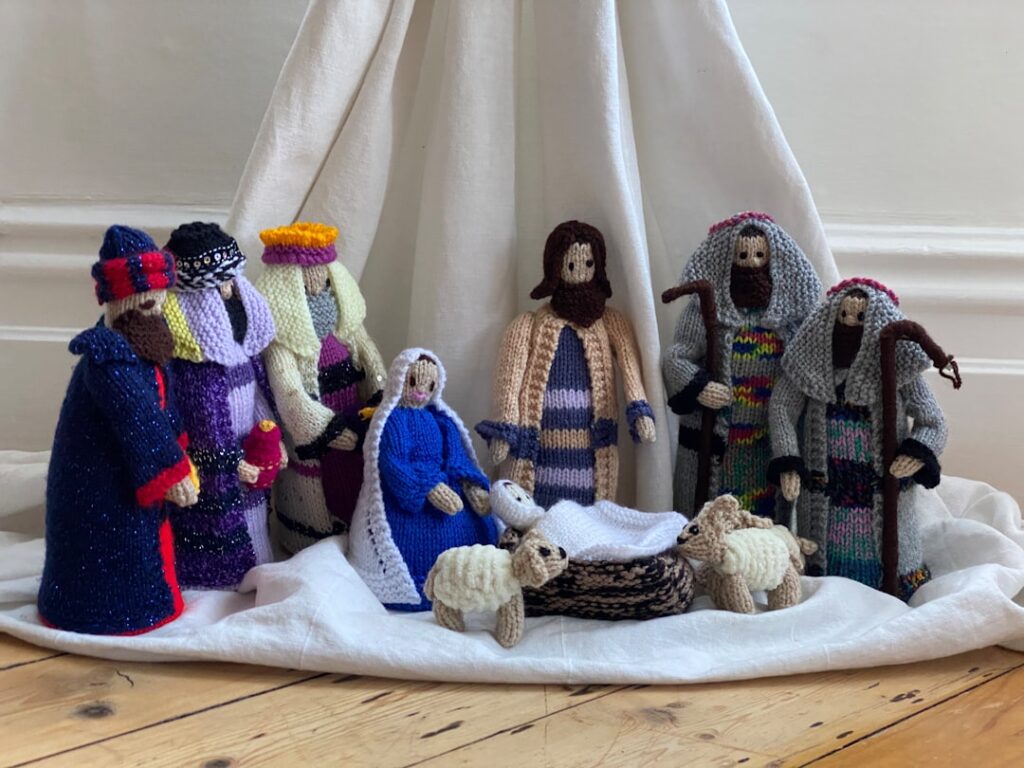
My wife and I recently met with a young Christian leader who preaches regularly at our church. As we sat around the wood burner that evening, our conversation shifted to the moves of God in recent years.
My friend has never experienced a move of God—that manifest presence, that heavy sense of His glory that lingers over worship. The kind of glory that draws people into profound intimacy with Jesus. My friend Paul used to preach about this, saying, “Jesus becomes the magnificent obsession of the heart.” She longs for what her parents and others before them have seen.
There’s a story in the Bible, tucked away in 1 Kings 14, that’s easy to overlook. It’s not the kind of story that makes it into Netflix movies or Sunday sermons—though I’ve preached on it—but it’s powerful. And when you see what’s happening in it, really see it, it gets under your skin. Because it’s not just about them—it’s about us.
Let me draw back the curtain: Solomon is gone. Solomon, the king who had such great wisdom. Now his son, Rehoboam, is king. Israel’s golden age? Over. Kaput. The kingdom has split, the people are fractured, and Jerusalem—the once-glorious city—is vulnerable. Then it happens. Shishak, king of Egypt, storms in, plundering the vast treasures of the temple and royal palace. Among the stolen treasures are Solomon’s solid gold shields—symbols of wealth, power, and most importantly, God’s approval and blessing.
But they’re gone now. Just like that.
And what does Rehoboam do? He doesn’t rebuild them—he can’t. He lacks the wealth, and more importantly, he lacks the blessing of God required to restore them. He doesn’t even try to get them back. Instead, he replaces them. Problem solved. With shields made of bronze.
Bronze.
Bronze is like the knockoff version of gold you might find on eBay. It looks similar from a distance—if you squint—but it’s not the same. Not even close.
Every time the king went to the temple, those bronze shields were ceremonially carried before him. They were a constant, prophetic reminder that the glory was gone. What once was, no longer is.
From Gold to Bronze
Can you feel the weight of that? The ache? Imagine being one of the priests, or one of the people, standing there as those bronze shields glinted in the sun. From a distance, they looked fine. Impressive, even. But you knew. Everyone knew. Those weren’t Solomon’s golden shields, forged in the era when God’s glory rested on Israel. They were replacements. Substitutes. Facades.
Shiny, but not sacred.
The shields had the appearance of splendour but lacked the substance of it. They weren’t fooling anyone. They were a daily reminder of what had been lost.
And isn’t that how it often goes? When the church loses the real thing—the presence of God—we scramble to replace it with something that looks the part but doesn’t carry the weight. Something shiny, but empty.
Ichabod: The Glory Has Departed
This isn’t Israel’s first “Ichabod moment.” Remember Ichabod? In 1 Samuel 4, the ark of the covenant—the symbol of God’s presence—was captured by the Philistines. “The glory has departed,” they said.
And now it’s happening again. But this time, it’s not just the ark that’s gone—it’s the golden shields.
What’s tragic is that the people don’t fully reckon with their loss. Instead of facing it, they polish the bronze. They carry on as if nothing has changed, pretending substitutes are enough.
Doesn’t this feel familiar?
Shiny but Empty
Let’s be honest: we know this story. We know what it’s like to lose something sacred and scramble to cover it up. We’ve seen it in the church. Once, there was fire. There was power. There was an unshakable sense that God was moving—healing, restoring, breaking chains. There were golden shields: worship that wasn’t just music but a meeting place with God; preaching that wasn’t just words but a declaration that cut to the heart; communities that weren’t just gatherings but places of Spirit-breathed life.
But somewhere along the way, we lost it. Maybe we got distracted. Maybe we got tired. Maybe we got comfortable. And instead of crying out for the return of the glory, we learned to polish the bronze. To settle for substitutes.
Could it be that we replaced presence with performance? Depth with production? Prophetic fire with clever speeches? Signs and wonders with strategies and structures?
Every time we gather—every time we sing, preach, or organise—we’re confronted by the question: Is this gold? Or is it bronze?
The Call of the Gospel
Here’s the thing about God: He doesn’t leave us in Ichabod. He doesn’t abandon us to our substitutes. The story of Scripture—the story of the gospel—is about a God who refuses to settle for polished bronze. He’s always calling us back to the real thing.
The golden shields were never about the shields. They were about the God who gave them. The God who filled the temple so thick with His presence that the priests couldn’t even stand (1 Kings 8:10–11). The God who split the sea, fed His people in the wilderness, and kept His covenants.
But the people forgot. They turned their hearts to other things. And the glory departed—not because God left them, but because they left Him.
Here’s the gospel: Jesus came to bring the glory back. Not with gold or bronze, but with Himself. Through His life, death, and resurrection, He restored what was lost. He is the radiance of God’s glory (Hebrews 1:3), calling us back to the real thing. Through Him, we are invited to be people of His presence again.
A Prophetic Call to the Church
So what does this mean for us?
It means we stop polishing the bronze. We stop pretending everything’s fine when it’s not. We stop settling for substitutes. It’s time to acknowledge our Ichabod moments. Maybe even grieve them. But it doesn’t end there, because the gospel doesn’t end with Ichabod—it ends with resurrection.
This is a prophetic call to the church: It’s time to return to the presence. To cry out for the fire again. To contend for signs and wonders—not for the sake of experiences, but for the sake of Him.
The world doesn’t need more polished bronze. It needs the real thing. The glory. The gold.
And here’s the good news: God is ready. The question is, are we? Will we settle for substitutes, or will we press in for His presence? Will we cling to bronze, or will we reach for the sacred?
The glory can return. The fire can fall again. Because our God is still the God of glory. And He’s not done with us yet.
“To Him be glory in the church and in Christ Jesus throughout all generations, forever and ever. Amen.” (Ephesians 3:21, ESV)






